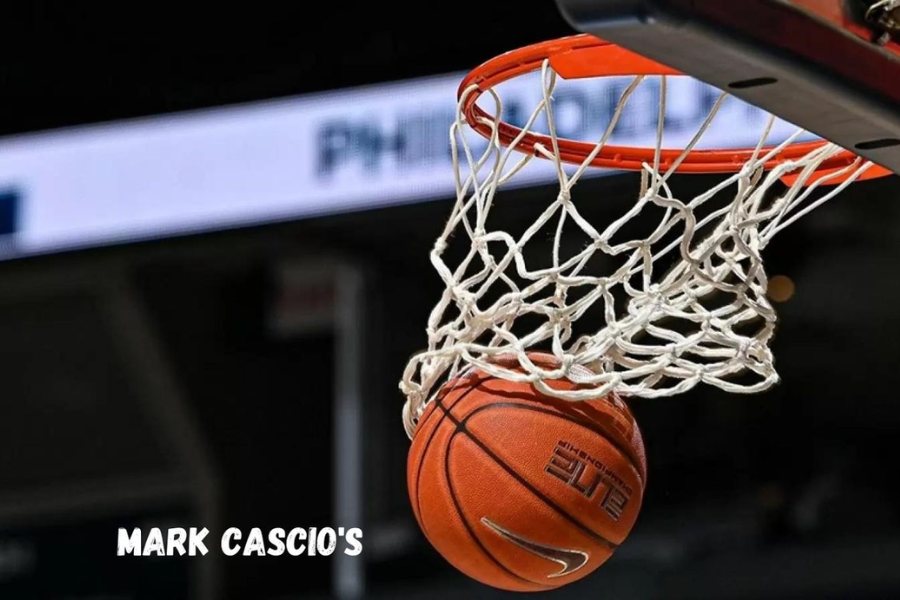“Unlocking Success: Mark Cascio’s Basketball Program Philosophy on a Napkin”
Introduction
Mark Cascio has made a name for himself in basketball program philosophy on napkin mark cascio coaching by developing innovative methods that focus on player development and empowerment. At the core of his coaching approach is simplifying the game for players, while fostering an environment that promotes accountability and decision-making. His unique style, often called the “Napkin Philosophy,” emphasizes player autonomy on the court, encouraging them to think critically rather than rely solely on predetermined plays.
The Concept Behind the “Napkin Philosophy”
Cascio’s “Napkin Philosophy” stems from the idea that even complex basketball program philosophy on napkin mark cascio strategies can be distilled into simple, digestible concepts. If a game plan can be written on a napkin, it’s clear and concise enough for players to understand and implement without hesitation. This approach promotes confidence and decisiveness, allowing players to act quickly and instinctively during games.
Simplified and Effective Coaching
By boiling down his teaching to a few key principles, Cascio ensures that his players have a crystal-clear understanding of what’s expected. This streamlined approach minimizes hesitation on the court, encouraging players to act freely and intuitively. With fewer instructions to juggle, athletes can focus on reading the game and executing efficiently.
Core Tenets of Cascio’s basketball program philosophy on napkin mark cascio Program
Empowering Players to Make Decisions
Central to Cascio’s coaching philosophy is giving players the freedom to make decisions in real time. Instead of merely running set plays, he encourages his athletes to read the defense and adapt their strategies based on what the situation calls for. This approach not only sharpens players’ basketball program philosophy on napkin mark cascio IQ but also prepares them for high-pressure scenarios where quick thinking is essential.
A High-Paced, Efficient Offense
Cascio’s teams are recognized for their fast-paced offensive style, built on ball movement, spacing, and rapid decision-making. His goal is to generate high-percentage shots without overcomplicating the offensive system. Constant movement and unpredictability keep opposing defenses on their heels, creating opportunities for easy baskets.
Defensive Adaptability and Flexibility
On defense, Cascio emphasizes adaptability. His teams adjust their defensive strategies based on the strengths and weaknesses of their opponents, avoiding rigid schemes in favor of a flexible approach that maximizes their chances of success.
Simplicity as the Key to Success
Reducing Complexity for Player Performance
One of Cascio’s guiding principles is simplifying the game for his players. He believes that when athletes aren’t overwhelmed with too many details, they perform better. This mental clarity enables them to concentrate on fundamental skills and make quick, smart decisions on the court.
Why Simplification Enhances Performance
By breaking down strategies into their simplest forms, players can execute more effectively and confidently. This streamlined approach allows teams to play at a faster pace and respond more quickly in high-pressure situations, leading to better overall performance.
Cascio’s Emphasis on Player Development
Building basketball program philosophy on napkin mark cascio IQ
Developing a player’s basketball program philosophy on napkin mark cascio intelligence is a cornerstone of Cascio’s philosophy. He strives to teach players how to read defenses, make split-second decisions, and adjust their tactics during the flow of the game.
Skill Development Within a Team Framework
While individual skill development is important, Cascio places great emphasis on how those skills contribute to the team as a whole. He focuses on cultivating players’ abilities within the context of teamwork, ensuring that each athlete understands their role and contributes to the collective effort.
Offensive Principles in Cascio’s System
Ball Movement and Spacing
Cascio’s offense revolves around consistent ball movement and effective spacing. By keeping the ball in motion and maintaining proper spacing, his teams create open looks and scoring opportunities. This approach keeps the defense on alert, preventing them from settling into a rhythm.
Fast Break and Transition Play
Fast breaks are a key part of Cascio’s offensive strategy. His teams aim to push the ball up the court quickly and capitalize on transition opportunities before the defense can get set. This up-tempo style not only leads to easier scoring chances but also energizes the team.
Defense in the Napkin Philosophy
Adapting to Opponent Strengths
Cascio trains his teams to adjust their defensive strategies based on the strengths and tendencies of their opponents. This flexibility allows them to tailor their defense to match specific challenges and exploit weaknesses.
Importance of Communication and Rotations
Communication is vital to Cascio’s defensive approach. Effective teamwork and constant communication ensure smooth defensive rotations, which are essential to executing his adaptable strategies.
Building a Winning Culture Through the Napkin Philosophy
Team Chemistry and Unity
Cascio believes that a strong team culture is the foundation of success. His coaching methods promote trust and collaboration among players, fostering a sense of unity that translates into better performance on the court.
Developing Leadership Within the Team
Cascio doesn’t just coach his players; he also teaches them leadership skills. By empowering athletes to make decisions and take responsibility both on and off the court, he helps them develop into effective leaders.
Applying Cascio’s Approach to Game Day Performance
Strategic Game Preparation
Cascio’s teams are known for being thoroughly prepared. Pre-game preparation involves studying opponents’ tendencies and identifying key matchups, ensuring that the team enters the game with a solid game plan.
In-Game Adjustments and Coaching
One of Cascio’s strengths is his ability to make real-time adjustments. His adaptable coaching style allows him to modify the game plan as situations arise, giving his teams a competitive edge.
Cascio’s Influence on Modern basketball program philosophy on napkin mark cascio
Mark Cascio’s simplified approach to basketball program philosophy on napkin mark cascio has made a significant impact, particularly at the youth, high school, and college levels. His emphasis on simplicity, player empowerment, and adaptability has resonated with modern coaches, influencing how the game is taught and played.
Testimonials from Players and Coaches
Players who have been coached by Cascio often credit him with improving their basketball program philosophy on napkin mark cascio IQ and decision-making skills. Coaches who have adopted elements of his philosophy have reported similar successes, particularly in fostering teamwork and unity.
Implementing the Napkin Philosophy in Your Program
Practical Steps for Coaches
Coaches interested in incorporating Cascio’s philosophy into their own programs can start by simplifying their strategies, focusing on core principles like decision-making, fast-paced offense, and defensive flexibility. Cascio also offers resources such as workshops and instructional videos to help coaches better understand his methods.
Conclusion
Mark Cascio’s “Napkin Philosophy” is a refreshing and innovative approach to basketball program philosophy on napkin mark cascio coaching. By simplifying strategies and empowering players to make decisions, he creates a dynamic, fast-paced, and adaptable style of play. His philosophy not only enhances individual player development but also fosters teamwork and leadership within the squad. Cascio’s ability to balance simplicity with sophistication has made his method influential in modern basketball program philosophy on napkin mark cascio, with a growing number of coaches and players adopting his approach for its effectiveness and clarity. Ultimately, Cascio’s vision of empowering athletes and creating a culture of responsibility continues to shape how the game is taught and played.


